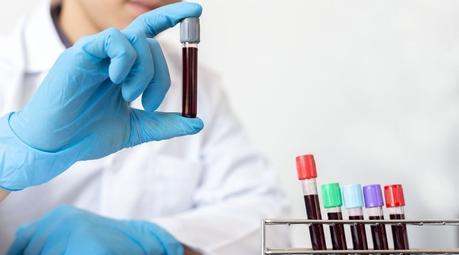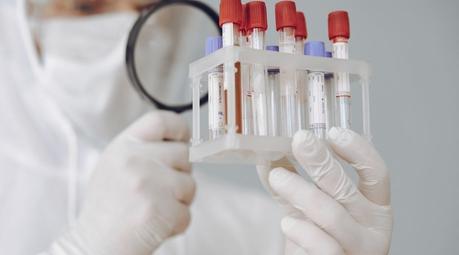WHAT IS PROLACTIN?
Prolactin is a hormone made by the pituitary gland located in the brain. When a woman is pregnant or when she gives birth to a baby, her prolactin hormone levels increase. As prolactin levels increase, milk begins to form in the breasts of women. In addition, it is also possible for prolactin levels to rise if you are not pregnant and even if you are a man.
This hormone is essential for the reproductive health of both men and women. High or low levels of prolactin hormone in a person's blood can also affect their fertility.
It is still not clear what the main functions of prolactin in men are, however, prolactin test is used to measure sexual satisfaction in both men and women. A prolactin test can also be used to find out other problems caused by hormones. After checking the level of prolactin in the blood sample, the doctor or healthcare provider may suggest possible treatments for the problem.
WHAT IS A PROLACTIN TEST?

A prolactin test helps provide information about the level of a hormone, called prolactin, in the blood. With the help of prolactin test, it is find out whether the level of prolactin in the blood is above or below normal.
WHY IS A PROLACTIN TEST DONE (PURPOSE OF PROLACTIN TEST):
Prolactin test is used to detect and manage the following conditions:
WHAT IS DONE BEFORE HAVING A PROLACTIN TEST?
You don't need to take any special care or preparations before having a prolactin test. To get the test done, you have to give a sample of your blood to the lab or hospital.
However, some birth control pills (contraceptive pills), medicines to prevent high blood pressure and depression medications (also called antidepressants; specially SSRIs) can interfere with prolactin test results.
If you are taking any of these medicines, even if you are taking any kind of medicines, tell your doctor before getting the test done. Test results can also be affected by increased stress, sleeping problems or strenuous workout before the test.
HOW IS A PROLACTIN TEST DONE?

The prolactin test is done in the same way as a normal blood test. The test can be done in a hospital or a laboratory and it takes only a few minutes. To do the test, a sample of blood is taken from your vein.
First of all, the place from where the sample is to be taken is cleaned with antiseptic. The needle is then inserted into the vein and the blood is pumped into a syringe or vial attached to the needle.
You can have a prolactin test at any time, even during your menstrual periods. The level of prolactin hormone varies throughout the day. However, prolactin levels are higher during sleep or soon after waking up. That's why a prolactin test is usually done three to four hours after you wake up.
WHAT IS DONE AFTER A PROLACTIN TEST?
After the blood is drawn for the sample, the needle is removed from your vein and a piece of cotton wool or a bandage is put on that area. The doctor or healthcare provider may also ask you to keep a slight pressure on the needle site for a while.
Don't perform any strenuous exercise immediately after the blood is drawn. If you feel pain, swelling or redness or any fluid is coming out of the place where the needle was inserted, tell your doctor immediately.
PROLACTIN TEST RESULT AND NORMAL RANGES:
The normal range of prolactin in the blood is:
- In men: less than 20 ng/ml (nanograms per milliliter).
- Women who aren't pregnant: less than 25 ng/ml.
- Pregnant women: 80 to 400 ng/ml.
HIGHER THAN NORMAL LEVEL OF PROLACTIN IN THE BLOOD:
If your prolactin level falls below the normal range, it does not necessarily mean that you have some kind of problem. Your prolactin level can also increase if you eat something immediately before the test or if you're under extreme stress during the test. Also, the normal range of prolactin levels may also vary according to different laboratories.
If your prolactin level is high (1000 times higher than normal), it could be a sign that you have a prolactinoma. A prolactinoma is a tumor in the pituitary gland that is not cancerous and can be treated with drugs. In such a situation, the doctor may suggest you to have an MRI (Magnetic Resonance Imaging) scan.
LOWER THAN NORMAL LEVEL OF PROLACTIN IN THE BLOOD:
If your prolactin hormone levels are lower than normal, it may mean that your pituitary gland is not working properly. This condition is called "hypopituitarism". Low levels of prolactin usually do not require treatment. There are also some medications that can lower prolactin levels, such as:
- Dopamine, a type of neurotransmitter.
- Levodopa, a drug used to treat patients with Parkinson's disease.
- Ergot alkaloid derivatives, medication used to treat severe headaches.
WHEN SHOULD A PROLACTIN TEST BE DONE?
If you experience any of the following symptoms, your doctor may suggest a prolactin test:
IN WOMEN:
- Irregular menstrual periods.
- Infertility.
- Fluid from the breast when you are not pregnant or in your nursing period.
- Pain in breasts when touched (breast tenderness).
- Symptoms associated with menopause such as hot flashes and vaginal dryness.
IN MEN:
- Difficulty in getting an erection.
- Pain or an increase in the size of breasts.
- Milk formation in the breasts (in very rare cases).
PROBLEMS IN BOTH MEN AND WOMEN:
- Unexplained headaches.
- having vision related problems.
PROLECTIN IN MEN:
High prolactin levels in men can cause many sex related problems such as infertility and reduced sexual desire. At the same time, this can make it hard to get an erection i.e. you will not reach the orgasm while during sex ( delayed ejaculation).
In addition, in men, high prolactin levels can also lead to cause galactorrhea (unexpected milky discharge from nipples). A man with untreated hyperprolactinemia may make relatively less sperm or no sperm at all.
WHAT ARE THE RISKS OF A PROLACTIN TEST?
There is also a risk of complications from prolactin testing. After the blood is drawn, a blue mark appears at the needle site. Immediately after removing the needle, applying slight pressure on the area for a few minutes reduces the chances of scarring. You may feel dizzy or faint after the blood is drawn.
In very rare cases, after the test, the vein becomes inflamed, this condition is known as phlebitis. To cure phlebitis, compress the inflamed vein with a hot object.
If you have a blood disorder, you may continue to bleed after the needle is removed. Apart from this, blood thinners such as Warfarin or Aspirin can also cause bleeding. If you are taking any such medicines, tell your doctor before having the test done.
RELATED ARTICLES:
REFERENCES:
- Hyperprolactinemia (High Prolactin Levels); American Society for Reproductive Medicine; Reproductive Facts.
- Prolactin; National Health Service (NHS).
- Current evaluation of amenorrhea.; Practice Committee of American Society for Reproductive Medicine; PMID: 19007635.
- Prolactin; Wikipedia.
- The Macroprolactin Problem; Janet A. Schlechte; The Journal of Clinical Endocrinology & Metabolism, Volume 87, Issue 12, 1 December 2002, Pages 5408-5409.
- Prolactin blood test; MedlinePlus.
- Prolactinoma; National Institute of Diabetes and Digestive and Kidney Diseases.

